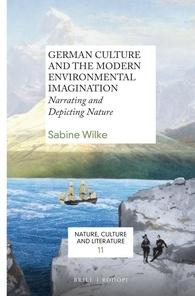Thinking about and relating to the environment – what the Germans call Umwelt, i.e., the world that surrounds us – in the way that we do today has a long tradition within modern German culture. German scientists were among the many European explorers that left Europe in the late eighteenth century on voyages of discovery to then unknown parts of the world. For some explorers, discovery meant the fundamental confirmation of their own superiority vis-à-vis primitive peoples and primitive natures; for others it resulted in a shake-up of their belief in the superiority of European civilization in the face of the achievements of other civilizations, or in the face of spectacular nature scenes that outperformed the temperate European landscapes in terms of scale, sublimity, and grandeur. The documents that contain these stories of discovery left an important impression not only on German culture, but on European civilization at large, defining it vis-à-vis other civilizations and other natures. Europe today is the product of these encounters, including the way we conceive of our Umwelt, the environment that surrounds us. The story told in this book is the story of the rise of the modern German environmental imagination with particular emphasis on its narrative and visual components, complementing and expanding Barbara Stafford’s important work in her seminal study of the illustrated travel account from 1984. Chapters on Georg Forster, Alexander von Humboldt, Albert Bierstadt, Leni Riefenstahl, and Werner Herzog unfold the key stages in a process that constitutes the unfolding of the modern German environmental imagination.
http://www.brill.com/products/book/german-culture-and-modern-environmental-imagination
